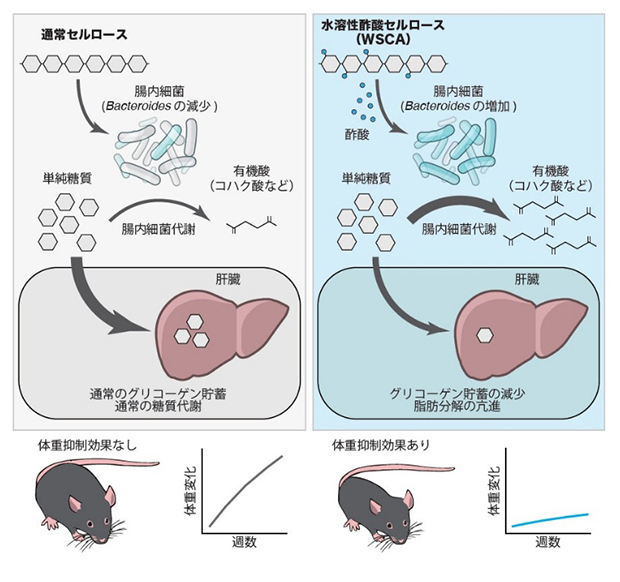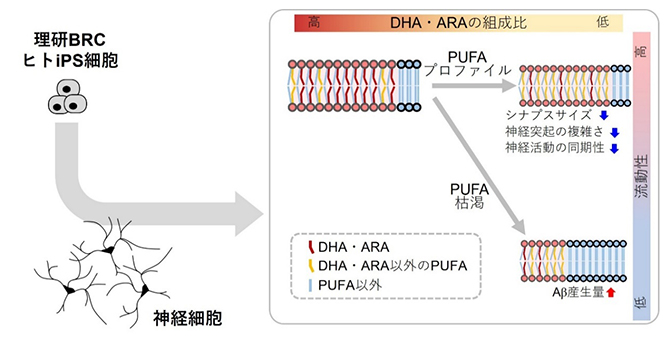2025-05-17 理化学研究所,株式会社ダイセル,日本医療研究開発機構

水溶性酢酸セルロース(WSCA)による腸内細菌を介した肥満抑制効果
<関連情報>
- https://www.riken.jp/press/2025/20250517_1/index.html
- https://www.cell.com/cell-metabolism/fulltext/S1550-4131(25)00223-2
アセチル化セルロースは腸内常在菌が宿主から摂取可能な炭水化物を介して体重増加を抑制する Acetylated cellulose suppresses body mass gain through gut commensals consuming host-accessible carbohydrates
Tadashi Takeuchi ∙ Eiji Miyauchi, ∙ Yumiko Nakanishi ∙ … ∙ Nobuo Sasaki ∙ Ikuo Kimura, ∙ Hiroshi Ohno
Cell Metabolism Published:May 16, 2025
DOI:https://doi.org/10.1016/j.cmet.2025.04.013
Highlights
- Acetylated cellulose (AceCel) reduces body mass gain in wild-type and ob/ob mice
- AceCel limits host carbohydrate oxidation and promotes fatty acid utilization
- AceCel reduces gut simple sugars and body mass gain in a microbiota-dependent manner
- Acetate facilitates carbohydrate fermentation by a gut Bacteroides species
Summary
Effective approaches to preventing and treating obesity are urgently needed. Although current strategies primarily focus on direct modulation of host metabolism, another promising approach may involve limiting nutrient availability through regulation of the gut microbiota, which links diet and host physiology. Here, we report that acetylated cellulose (AceCel), which markedly alters gut bacterial composition and function, reduces body mass gain in both wild-type and obese mice. AceCel limits carbohydrate oxidation and promotes fatty acid oxidation in the host liver in a microbiota-dependent manner. We further show that acetate enhances carbohydrate fermentation by the gut commensal Bacteroides thetaiotaomicron, depleting host-accessible simple sugars in the gut of AceCel-fed mice. These findings highlight the potential of AceCel as a prebiotic that regulates carbohydrate metabolism in both bacteria and host, offering promise as a therapeutic strategy for obesity.

